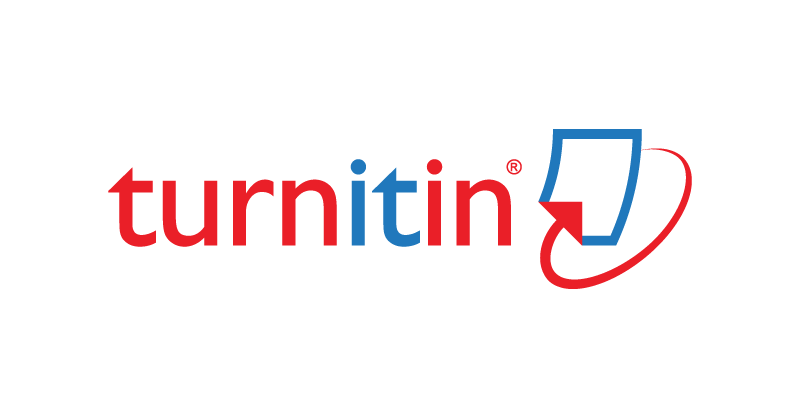Gaya Kepemimpinan di Era Pandemi Covid-19
Abstract
Dunia sedang mengalami krisis kesehatan berskala luas yang diakibatkan oleh covid-19. Diperlukan seorang pemimpin yang berkarakter kuat serta mampu mengatasi ancaman saat ini dan menghadapi tantangan dimasa depan. Hal ini memungkinkan adanya perubahan pada gaya kepemimpinan yang diakibatkan oleh covid-19. Pemimpin mulai bertransformasi dan adaptif di tengah adanya virus corona. Perubahan lingkungan yang cepat akan perubahan teknologi komunikasi dan berkembangnya paradigma masyarakat, menuntut diterapkannya gaya kepemimpinan yang sesuai dengan perubahan tersebut. Hal ini membuat peran kepemimpinan digital dapat dengan mudah untuk diimplementasikan pada era revolusi 4.0. Pada penelitian ini, menggunakan teori-teori dari para ahli dan sumber untuk menopang penelitian. Selain itu, didukung dengan penelitian-penelitian terdahulu yang memiliki teori hubungan yang sesuai dengan penelitian. Objek penelitian adalah gaya kepemimpinan. Subjek penelitian adalah organisasi bisnis di Dunia. Metode pengumpulan data pada penelitian dilakukan secara triangulasi (gabungan) sesuai dengan prosedur PRISMA. Penelitian ini menunjukkan bahwa Gaya kepemimpinan yang harus dikembangkan di lingkungan organisasi pada era digital adalah Kepemimpinan Etis, Kepemimpinan Transformasional, Gaya Otoriter Kepemimpinan Paternalistik, Gaya Moral Kepemimpinan Paternalistik, Kepemimpinan Digital, dan Kepemimpinan yang Melayani. Kesimpulan dari penelitian ini adalah gaya kepemimpinan yang dapat meningkatkan kinerja dan kepuasan karyawan serta masih sesuai dengan revolusi industri 4.0 adalah kepemimpinan etis.
The world is experiencing a wide-scale health crisis caused by the covid-19. It takes a leader who has a strong character and is able to overcome current threats and face future challenges. This allows for a change in leadership style due to Covid-19. Leaders begin to transform and adapt in the midst of the corona virus. Rapid environmental changes due to changes in communication technology and the development of the community paradigm, require the application of a leadership style that is in accordance with these changes. This makes the role of digital leadership easy to implement in the 4.0 revolution era. In this study, using theories from experts and sources to support research. In addition, it is supported by previous studies that have a relationship theory that is in accordance with research. The research object is leadership style. The research subjects are business organizations in the world. The data collection method in the study was carried out in a triangulation (combined) manner according to the procedure PRISMA. This research shows that the leadership styles that must be developed in an organizational environment in the digital era are Ethical Leadership, Transformational Leadership, Authoritarian Style of Paternalistic Leadership, Moral Style of Paternalistic Leadership, Digital Leadership, and Servant Leadership. The conclusion of this study is that a leadership style that can improve employee performance and satisfaction and is still in accordance with the industrial revolution 4.0 is ethical leadership.
Full Text:
PDFReferences
AlAjmi, M. K. (2022). The impact of digital leadership on teachers’ technology integration during the COVID-19 pandemic in Kuwait. ELSEVIER : International Journal of Educational Research, 112, 1–10. https://doi.org/https://doi.org/10.1016/j.ijer.2022.101928
Aliya, H. (2021). Bagaimana Sih, Reaksi Deretan Perusahaan Ini Terhadap Corona? Glints. https://glints.com/id/lowongan/strategi-perusahaan-terdampak-corona/#.Y8tyHSgzZPZ
Bartsch, S., Buttgen, E. W. and M., & Huber, A. (2021). Leadership matters in crisis-induced digital transformation: how to lead service employees effectively during the COVID-19 pandemic. Journal of Service Management, 32(1), 71–85. https://doi.org/10.1108/JOSM-05-2020-0160
Basuki, S., Novitasari, D., Fahlevi, M., Nadeak, M., Fahmi, K., Pebrina, E., Sudiyono, R., & Asbari, M. (2020). Performance Analysis of Female Employees in the Covid-19 Pandemic Period: The Effects of Readiness for Change and Effectiveness of Transformational Leadership. Solid State Technology, 63(1s), 201–217.
Bibi, M., & Khan, A. (2022). Wellbeing in the Era of Covid 19 Pandemic With Moderating Effect Impact of Paternalistic Leadership on Employee Psychological Wellbeing in the Era of Covid 19 Pandemic With Moderating Effect of Sustainable Hr. March. https://www.researchgate.net/profile/Munaza-Bibi/publication/359453669_IMPACT_OF_PATERNALISTIC_LEADERSHIP_ON_EMPLOYEE_PSYCHOLOGICAL_WELLBEING_IN_THE_ERA_OF_COVID_19_PANDEMIC_WITH_MODERATING_EFFECT_OF_SUSTAINABLE_HR_PRACTICES/links/62441bc28068956f3c593257
D’Auria, G., & Smet, A. De. (2020). Kepemimpinan di masa krisis: Menghadapi wabah virus corona dan tantangan di masa depan. McKinsey & Company.
Dewi, R. K., & Sjabadhyni, B. (2021). Digital Leadership as a Resource to Enhance Managers’ Psychological Well-Being in COVID-19 Pandemic Situation in Indonesia. The South East Asian Journal of Management, 15(2). https://doi.org/10.21002/seam.v15i2.12915
Grobler, A., & Flotman, A.-P. (2021). Servant leadership, team-based learning and hope and optimism: A sectoral comparative study. South African Journal of Business Management, 1–12.
Ingsih, K., Suhana, S., & Ali, S. (2021). Transformational leadership style and organizational commitment in pandemic Covid-19. Contaduría y Administración, 66(5), 1–20.
Irfan, K.-U., Bano, S., & Nawaz, M. (2022). Ethical Leadership and Work Engagement, Job-related Affective Well-being in the COVID-19: The Role of Organizational Trust. Journal of South Asian Studies, 10(2), 271–282. https://doi.org/10.33687/jsas.010.02.4246
Koo, I., Anjam, M., & Zaman, U. (2022). Hell Is Empty, and All the Devils Are Here: Nexus between Toxic Leadership, Crisis Communication, and Resilience in COVID-19 Tourism. MDPI Sustainability, 14(10825), 1–19. https://doi.org/https://doi.org/10.3390/su141710825
Meiryani, Nelviana, Koh, Y., Soepriyanto, G., Aljuaid, M., & Hasan, F. (2022). The Effect of Transformational Leadership and Remote Working on Employee Performance During COVID-19 Pandemic. Frontiers in Psychology, 13(August). https://doi.org/10.3389/fpsyg.2022.919631
Peramesti, N. P. D. Y., & Kusmana, D. (2018). Kepemimpinan Ideal pada Era Generasi Milenial. TRANSFORMASI: Jurnal Manajemen Pemerintahan, 10(1), 73–84.
Rivaldo, Y. (2021). Leadership and Motivation to Performance through Job Satisfaction of Hotel Employees at D’Merlion Batam. The Winners, 22(1), 25–30. https://doi.org/10.21512/tw.v22i1.7039
Samreen, F., Nagi, S., Naseem, R., & Gul, H. (2022). COVID-19-Induced Downsizing and Survivors’ Syndrome: The Moderating Role of Transformational Leadership. Frontiers in Psychology, 13(833), 1–14. https://doi.org/10.3389/fpsyg.2022.833116
Yücel, ̇Ilhami. (2021). Transformational Leadership and Turnover Intentions: The Mediating Role of Employee Performance during the COVID-19 Pandemic. MDPI Administrative Sciences, 11(81), 1–21. https://doi.org/https://doi.org/10.3390/admsci11030081
Zaman, M. N., Novitasari, D., Goestjahjanti, F. S., Fahlevi, M., Nadeak, M., Fahmi, K., Setiawan, T., & Asbari, M. (2020). Effect of Readiness to Change and Effectiveness of Transformational Leadership onWorkers’ Performance during Covid-19 Pandemic. Solid State Technology, 63(1s), 185–200.
DOI: https://doi.org/10.31294/widyacipta.v7i2.15866
Copyright (c) 2023 Tiara Willy Nabila, Rochayati Febriarhamadini, Sylvia Sari Rosalina, Ratih Nur Setyaningsih

This work is licensed under a Creative Commons Attribution-ShareAlike 4.0 International License.
Index by:
Published LPPM Universitas Bina Sarana Informatika with supported by Relawan Jurnal Indonesia
Jl. Kramat Raya No.98, Kwitang, Kec. Senen, Jakarta Pusat, DKI Jakarta 10450, Indonesia

This work is licensed under a Creative Commons Attribution-ShareAlike 4.0 International License





